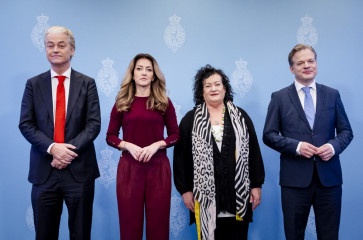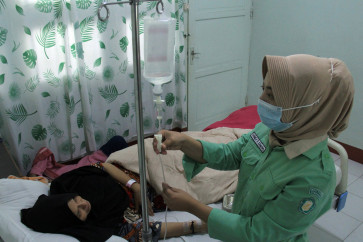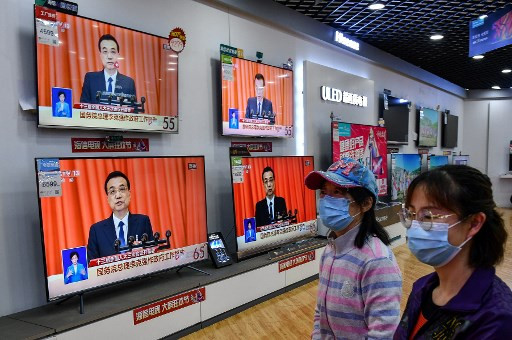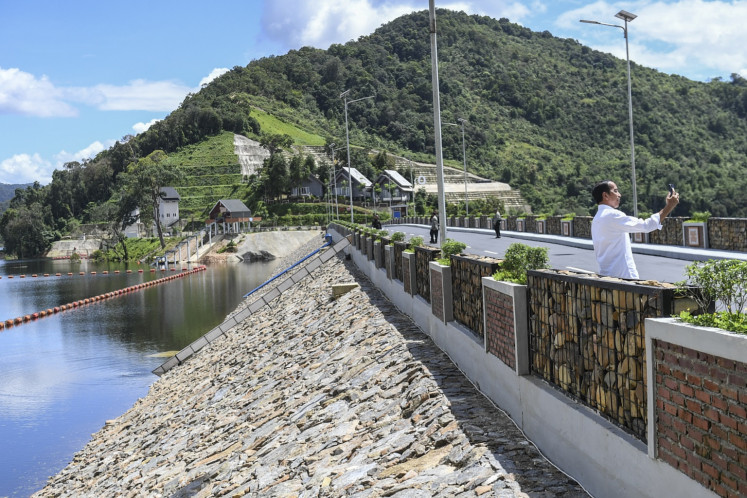Editorial: Dynast-ocracy
Millions of housewives and other faithful infotainment audiences may have noticed something odd recently as their television idols started discussing politics, a departure from their regular conversations about love affairs, divorce or social gossip
Change Size

Millions of housewives and other faithful infotainment audiences may have noticed something odd recently as their television idols started discussing politics, a departure from their regular conversations about love affairs, divorce or social gossip.
Artists, ranging from soap opera movie stars to comedians, have set their sights on a new stage as they have become registered as legislative candidates for the party of their choice for the 2009 elections.
The National Mandate Party (PAN) is parading the largest pool of celebrities among the 38 parties contesting the polls next year, prompting rival groups to jokingly refer to it as the Partai Artis Nasional (National Artists Party).
There is nothing new about celebrities-turned politicians here or anywhere else in the world. A number of celebrities won legislative seats in the 2004 polls and recently contested regional elections -- two of them successfully.
It should also perhaps have been taken for granted when the offspring, siblings and wives of political party leaders dotted the lists of legislative candidates submitted by the parties to the General Elections Commission on Monday and Tuesday.
President Susilo Bambang Yudhoyono's youngest son Edhie Baskoro, former president Megawati Soekarnoputri's youngest daughter Puan Maharani, House of Representatives Speaker Agung Laksono's son Dave Laksono, former People's Consultative Assembly speaker Amien Rais' son Ahmad Mumtaz and former vice president Hamzah Haz' son Nur Agus Haz and son-in-law Musa Ichwanshah will all compete for House seats representing the Democratic Party, Indonesian Democratic Party of Struggle, Golkar Party, PAN and United Development Party (PPP), respectively.
The People's Conscience Party (Hanura) has nominated its chairman Wiranto's wife Uga Wiranto and the PPP has listed the wife of its deputy chairman Yunus Yosfiah, Antonia Ricardo, as one of its legislative candidates.
One cannot make room for new kids on the political block just like that and without a fuss. The United States, perceived as the champion of democracy, has until today venerated the Kennedy dynasty. Asian neighbor, the world's largest democracy, India has never written the Nehru dynasty off its political stage. Indonesia, too, can hardly make a break with the Sukarno dynasty.
Given the lack of proven track records of the new faces, however, many fear their nomination for the election only mirrors the limitations of prevailing mechanisms for political recruitment within the political parties. The rise of new political elite groups through bloodlines or celebrity status may help parties win votes for now, but sooner or later it may wreack havoc, not only with party unity, but also with the whole political system.
Privileges given to certain individuals kills the culture of political competition, which historically has proven to be the inspiration of innovation and development. The absence of competition deprives party members of the opportunity to improve skills and results in yes men or true believers who dare not argue with party leaders.
The fact that party leaders, taking advantage of election law, choose loyalty over democracy in recruiting their legislators, poses a threat to the political system now that the House is facing an uphill challenge to perform better and restore public trust. A democratic election will unfortunately admit untested politicians, who may not have had to work their way up as they compete in electoral districts known to be safe seats. In the end, there will be a question about whether such politicians will fight for public interests or party benefits.
It's high time to perceive the House of Representatives as the top of a political career. Politicians, regardless of their ties with the elite, need to go through a process which starts from the lowest legislative level before they can secure House seats.
For many years the law making body has come under criticism for its poor performance, mainly because of unfair recruitment of politicians.









